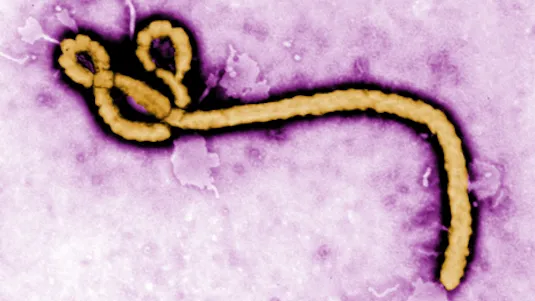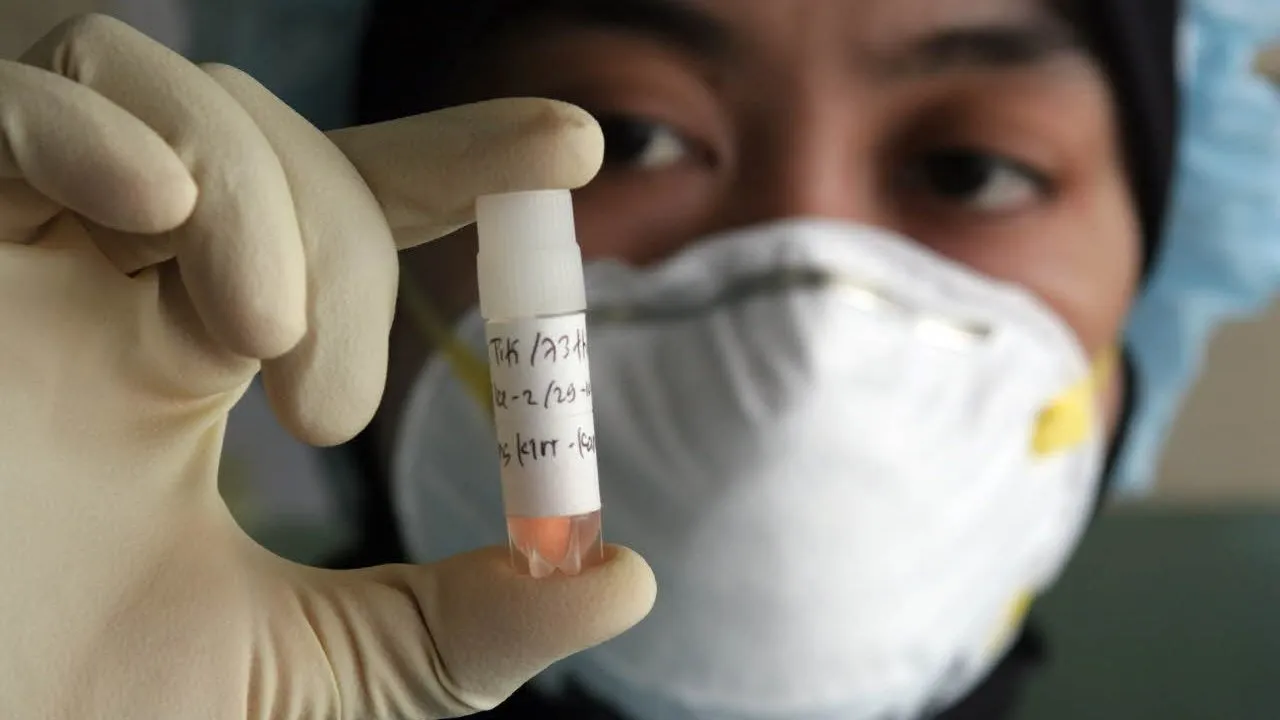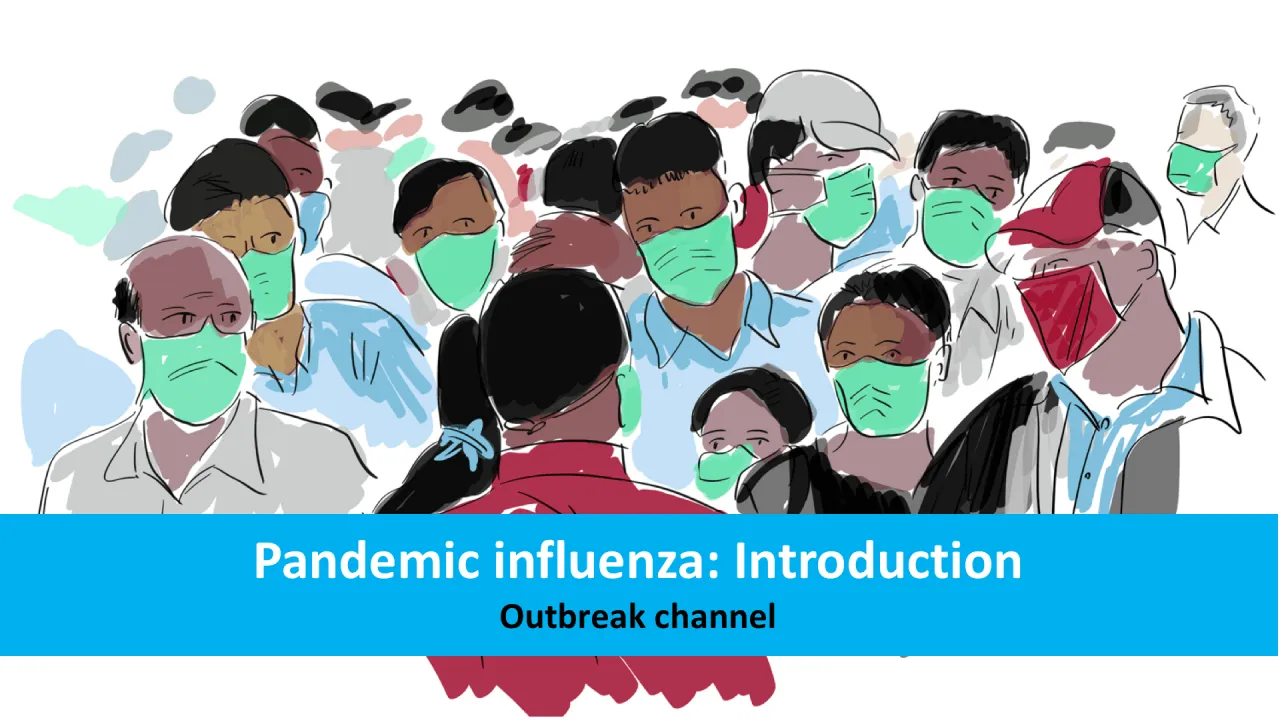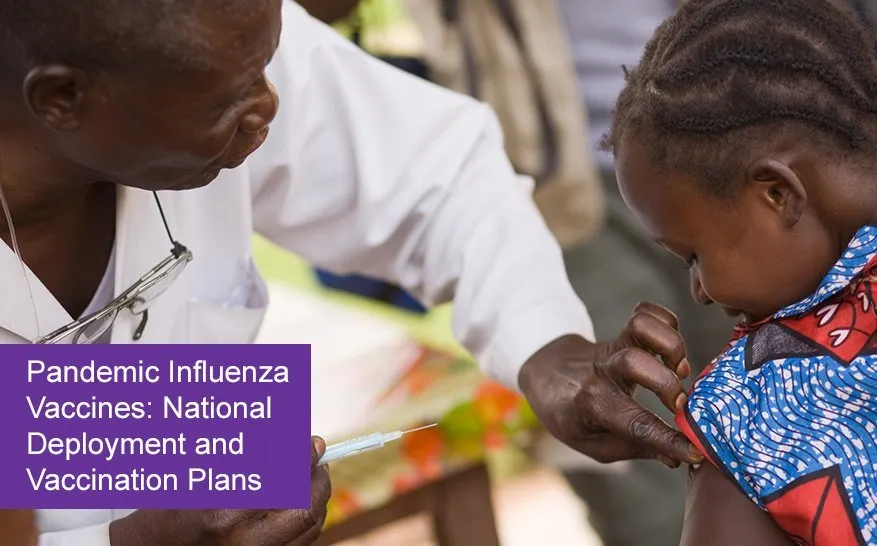
Ebola Virus Disease: An Evolving Epidemic 
This course provides an overview of the Ebola virus disease, from its prevention and management to its ethical considerations and post-epidemic global health implications. Gain insight into the evolving epidemic and its various aspects. ▼
ADVERTISEMENT
Course Feature
![]() Cost:
Cost:
Free
![]() Provider:
Provider:
Coursera
![]() Certificate:
Certificate:
Paid Certification
![]() Language:
Language:
English
![]() Start Date:
Start Date:
31st Jul, 2023
Course Overview
❗The content presented here is sourced directly from Coursera platform. For comprehensive course details, including enrollment information, simply click on the 'Go to class' link on our website.
Updated in [March 06th, 2023]
1. Disease Prevention: Learners can gain an understanding of the various strategies used to prevent the spread of Ebola, such as contact tracing, quarantine, and vaccination.
2. Management and Treatment: Learners can explore the various treatments and management strategies used to treat Ebola, such as supportive care, experimental treatments, and antiviral medications.
3. Response to the Epidemic: Learners can gain insight into the various responses to the Ebola epidemic, such as the role of international organizations, the media, and the public.
4. Ethical Considerations: Learners can explore the ethical considerations of the Ebola epidemic, such as the implications of quarantine, the use of experimental treatments, and the allocation of resources.
5. Post-Ebola Global Health Landscape: Learners can gain an understanding of the long-term implications of the Ebola epidemic, such as the impact on global health systems and the need for continued research and development.
[Applications]
After completing this course, learners can apply their knowledge to help prevent, manage, and treat Ebola Virus Disease. They can also use their understanding of the epidemic to inform their response to future outbreaks. Learners can also use their knowledge to consider ethical implications of the epidemic and to help shape the post-Ebola global health landscape.
[Career Paths]
1. Disease Prevention and Control Officer: Disease prevention and control officers are responsible for developing and implementing strategies to prevent and control the spread of infectious diseases. They work with public health agencies, healthcare providers, and other stakeholders to ensure that appropriate measures are taken to protect the public from the spread of disease. As the Ebola epidemic continues to evolve, disease prevention and control officers will be increasingly important in helping to contain the spread of the virus.
2. Public Health Emergency Response Coordinator: Public health emergency response coordinators are responsible for coordinating the response to public health emergencies, such as the Ebola epidemic. They work with public health agencies, healthcare providers, and other stakeholders to ensure that appropriate measures are taken to protect the public from the spread of disease. As the Ebola epidemic continues to evolve, public health emergency response coordinators will be increasingly important in helping to contain the spread of the virus.
3. Infectious Disease Epidemiologist: Infectious disease epidemiologists are responsible for studying the spread of infectious diseases, such as the Ebola virus. They work with public health agencies, healthcare providers, and other stakeholders to identify risk factors and develop strategies to prevent and control the spread of disease. As the Ebola epidemic continues to evolve, infectious disease epidemiologists will be increasingly important in helping to contain the spread of the virus.
4. Global Health Policy Analyst: Global health policy analysts are responsible for analyzing global health policies and making recommendations for improving them. They work with public health agencies, healthcare providers, and other stakeholders to ensure that appropriate measures are taken to protect the public from the spread of disease. As the Ebola epidemic continues to evolve, global health policy analysts will be increasingly important in helping to shape the global health landscape in the post-Ebola era.
[Education Paths]
1. Public Health: Public health is a field of study that focuses on the health of populations and communities. It is a multidisciplinary field that combines the sciences, social sciences, and humanities to address health issues. Public health professionals work to prevent and control the spread of disease, promote health and wellness, and protect the public from health threats. Developing trends in public health include the use of data and analytics to inform decision-making, the use of technology to improve health outcomes, and the use of evidence-based approaches to address health disparities.
2. Epidemiology: Epidemiology is the study of the distribution and determinants of health-related states or events in specified populations, and the application of this study to the control of health problems. Epidemiologists investigate the causes of disease, the factors that influence its spread, and the ways to prevent and control it. Developing trends in epidemiology include the use of big data and machine learning to identify patterns and predict disease outbreaks, the use of mobile technology to collect data in real-time, and the use of social media to track and monitor disease outbreaks.
3. Global Health: Global health is a field of study that focuses on the health of populations around the world. It is a multidisciplinary field that combines the sciences, social sciences, and humanities to address health issues in a global context. Global health professionals work to improve health outcomes, reduce health disparities, and promote health equity. Developing trends in global health include the use of technology to improve access to health care, the use of data and analytics to inform decision-making, and the use of evidence-based approaches to address global health challenges.
4. Infectious Disease: Infectious disease is a field of study that focuses on the prevention, diagnosis, and treatment of infectious diseases. It is a multidisciplinary field that combines the sciences, social sciences, and humanities to address infectious diseases. Infectious disease professionals work to prevent and control the spread of disease, promote health and wellness, and protect the public from health threats. Developing trends in infectious disease include the use of data and analytics to inform decision-making, the use of technology to improve health outcomes, and the use of evidence-based approaches to address infectious disease outbreaks.
Course Syllabus
Introduction to Ebola
Upon completion of this module, learners will be able to:Patient Care of Persons with Ebola Virus Disease
Review the state of global public health prior to the 2014 Ebola epidemic.Prevention, Treatment, and Response
Explore the etiology of Ebola and other viral hematic fevers.Laboratory Issues
Explain the epidemiology of the 2014 Ebola epidemic and why this outbreak is different than previous ones.Managing Potential and Diagnosed Ebola Patients
Explain why tropical forest-associated zoonotic pathogens like Ebola are emerging at an ever-increasing rate.How Ebola is Changing Global Health
Recognize drivers of disease spillover from wildlife to people and discuss how to mitigate disease spillover.Pros & Cons

Informative, comprehensive, timely, variety of expertise, wellrounded overview, relevant to current events.

Videos long, lack of biology background.
Course Provider

Provider Coursera's Stats at AZClass
Discussion and Reviews
0.0 (Based on 0 reviews)
Explore Similar Online Courses

First Aid&CPR

IBM Introduction to Machine Learning

Python for Informatics: Exploring Information

Social Network Analysis

Introduction to Systematic Review and Meta-Analysis

The Analytics Edge

DCO042 - Python For Informatics

Causal Diagrams: Draw Your Assumptions Before Your Conclusions

Whole genome sequencing of bacterial genomes - tools and applications

Pandemic and epidemic-prone diseases

Pandemic influenza: Introduction

Pandemic Influenza Vaccines: National Deployment and Vaccination Plans
 Related Categories
Related Categories
 Popular Providers
Popular Providers
Quiz
 Submitted Sucessfully
Submitted Sucessfully
1. What is the primary mode of transmission for the Ebola virus?
2. What is the primary goal of the response to the Ebola epidemic?
3. What is the most effective way to prevent the spread of the Ebola virus?
4. What is the main focus of the course?
Correct Answer: The evolving Ebola epidemic.


Start your review of Ebola Virus Disease: An Evolving Epidemic